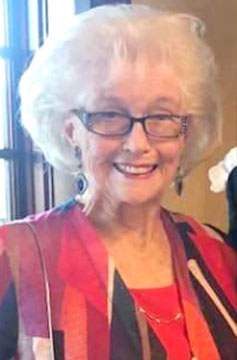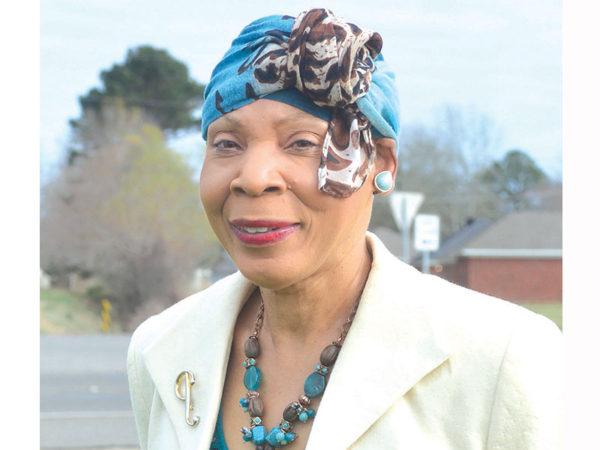On the November 16 ballot there will be a tax proposal that asks whether or not Richwood residents should tax themselves $25 per parcel of land/per year to pay the utility bill for proposed new lighting on the stretch of highway from Winnsboro Road to just South of Richwood High School.
Richwood Mayor Gerald Brown favors the lighting tax, but Richwood Alderman Wysinger Cleveland says the cost would be too high for individuals to provide lighting on a state highway.
Most Richwood residents were unaware of any of the details of the proposition until interim Police Juror, Kay Kellogg Katz alerted the Black news media that it would be on the ballot.
In a news release, Katz notified Southside voters that a proposition will be on the ballot that will assess a charge of $26.25 a year for nine years to provide maintenance and the cost of providing lights along the 165 Highway from Winnsboro Road to Richwood High School.

Katz said those voting for the tax would be those within the boundaries of Richwood, excluding Pine Bayou which has a lighting district already. She said approval “is necessary to be able to continue the project of installing new lighting on 165 South from Winnsboro Road to Richwood High School. This project will improve safety for driveres and pedestrians on this roadway.”
Both Mayor Brown and Alderman Cleveland agree that the lighting project is needed, however, they differ about who should foot the bill.
Cleveland contends that while the proposal calls for residents to pay $25 a year for the lights, many are not aware that it is $25 per parcel of land owned.
“Some of our people own many parcels of land that have been passed down through the generations. They are seniors now and for a person who owns four parcels of land this is a $100 tax, not a $25 tax. That’s too much to pay for lights on a state highway.
Mayor Brown says the November 16 vote is the town’s first option, which he favors. He said, while the town is fiscally solvent at present due to the unexpected winfall it is receiving because Richwoood Correctional Center is housing illegal immigrants. RCC pays the $1.50 a day for the nearly 1,000 detainees it is holding for the Trump Administration.
He said that financial winfall is not guaranteed, and certainly can be guaranteed beyond the term of President Donald Trump. He said he is hesitant to make a $25,000 annual commitment nine years in advance without a secure income source.
Mayor Brown said, the lights are needed, if the lighting prosition fails on November 16, then the town will have no other choice but to consider paying the costs outright from the town’s treasury.
The Mayor wants the lighting proposition to pass. Cleveland says it should fail so that the town can assume the costs and save residents increase costs.
It began with Moore
Representative Pat Moore has been working for years, when she was a

Police Juror, to get the state to make 165 safer. She pushed for and found funds to build a crosswalk across Hwy. 165 in the area of the Ollie Burns Library. She then focused on getting lights along Highway 165 when pedestrians repeatedly became accident victims.
When she pushed the project through the Department of Transportation and secured funding to install the lights, but hit another snag; some governing body has to take responsibility for paying the maintenance cost and the monthly electric bill.
She tried to get the state to pay the bill, but had no luck.
When Moore floated the idea to the Police Jury. She said the jury met with Entergy and assessed the estimated annual costs at about $25,000 a year, but the jurors wouldn’t agree to pay that cost, because there are 50 other lighting districts that pay their own costs.
She then turned to the Town of Richwood, Mayor Brown and town leaders said the Town did not have the funds and town’s leadership would not commit to paying the bill.
So, to get it done, Moore took the unusual step of getting the Police Jury to form a lighting district for the area and allow the public to pay for the lights themselves, although Highway 165 is a state highway.
The Lighting District is called the Road Lighting District 51. It has the power to raise taxes and fees sufficient to maintain lighting in the district. Using this method the owners of each parcel of land in the district will pay a tax to provide lighting in the district.
The police jury would collect the tax and keep it in a seperate account to pay the utilities and any maintenance costs involved, said Moore. It cannot collect more than $25,000 a year, she said.
The official language on the November 16th ballot is:
“Shall Road Lighting District No. Fifty-One of the Parish of Ouachita, State of Louisiana (the “District”), through its Governing Authority, be authorized to assess and to adopt a resolution providing for the assessment of an annual service charge of not more than $25.00, plus a collection charge of $1.25 to be paid to the Tax Collector, per parcel of immovable property located wholly or partly within the boundaries of said Road Lighting District for a period of nine (9) years, beginning with the year 2020, and ending with the year 2028, for the purpose of paying utility charges for road lighting and maintaining and operating road lighting facilities and equipment, this being a new service charge, and the amount reasonably expected to be collected from the levy of the Service Charge for the first year will be approximately $25,000.00!”
If passed, the citizens would assume the cost of paying for lights that both governments in the district refuse to pay.
In contrast, the City of Monroe broke ground last week for a strip of lighting on the same road from Winnsboro Road North. The city paid $110,000, a 20% share of the cost of the lights, and will foot the electric bill and maintenance costs. The citizens will not have an additional tax to pay.




